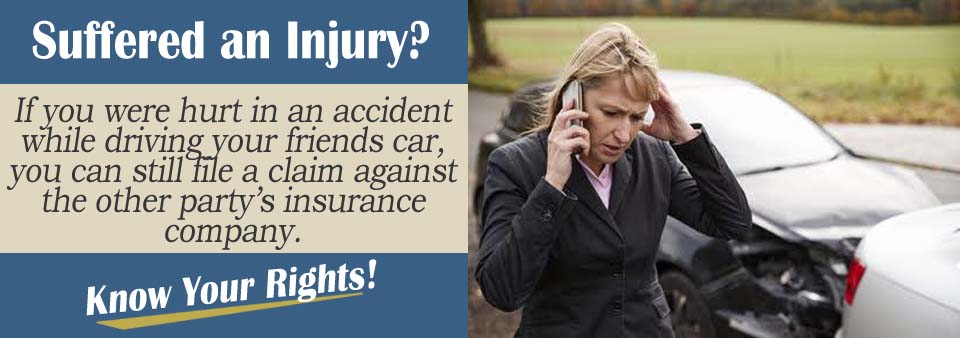It happens so easily. Someone lends you his or her car, and what do you know? You get into an accident. What happens? Many of us would not be sure in these types of situations. Do you file the claim under your insurance policy or the car owner’s policy?
We have asked attorney, Alaina Sullivan, about what you should do. Here is what she had to say:
The Car Insurance Follows the Car
When your friend lent you his or her car, the insurance policy came with it. In most states, both comprehensive and collision insurance coverage protects the car, no matter who the driver may be. The driver’s car insurance will take primary coverage and then your insurance, as the driver of your friend’s car, would be secondary. Your friend’s insurance could cover any damage to the vehicle or other property damage that happened because of your accident.
You could potentially then file a claim for personal liability and medical expenses. Unfortunately, that means that your friend’s insurance rates will likely go up, unless the accident you are in is not your fault. In those situations, you would file a claim with the at-fault party’s insurance. Hopefully you do have insurance so your friend will not be 100 percent liable for all damages involved.
Covered Drivers
Most car insurance policies have a permissive use clause in them. This clause means that the insurance will cover any driver or family member who lives with the policyholder. Unless you are related to your friend, however, you would not fall in this category, even if you lived with the policyholder.

Did You Have Permission?
One of the first questions the insurance company will ask the policyholder is: did you give your friend permission to drive your car? If your friend says no, he or she did not give you permission, you will likely not receive any type of compensation for damages from your friend’s insurance policy. Otherwise, you should expect to file a claim with your own insurance company for damages.
Owner Negligence
The car owner’s insurance company may find that the owner was negligent in lending you the car. If that is the case, the owner’s insurance policy would not assume responsibility for paying the bills. Negligence could include your friend lending you the car if he or she knew you had no valid license or were intoxicated.
You would likely need to file a claim with your own insurance company at that point and hope that they will cover you despite your own participation in the negligence and wrongdoing involved.
No-Fault Insurance
In 12 states, your accident falls under special situations created by no-fault insurance. In these states, every licensed driver is required to file any car accident claims for injuries through his or her own personal injury (PIP) coverage.
These no-fault states include Florida, Hawaii, Kansas, Massachusetts, Michigan, Minnesota, New York, North Dakota and Utah, where this type of insurance is mandatory. Kentucky, New Jersey and Pennsylvania allow drivers to opt into no-fault insurance policies if wanted.
Contact a Personal Injury Attorney Today
A licensed personal injury attorney will be able to evaluate your case and determine if you have a claim against the other party’s insurance company. For the best chance of receiving the compensation you need to pay for medical bills, auto body bills, and pain and suffering, you should speak with a personal injury attorney in your area today.